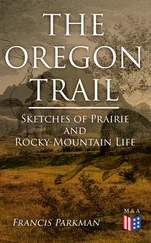Rachel Busk - The Valleys of Tirol - Their traditions and customs and how to visit them
Здесь есть возможность читать онлайн «Rachel Busk - The Valleys of Tirol - Their traditions and customs and how to visit them» — ознакомительный отрывок электронной книги совершенно бесплатно, а после прочтения отрывка купить полную версию. В некоторых случаях можно слушать аудио, скачать через торрент в формате fb2 и присутствует краткое содержание. Жанр: foreign_antique, foreign_prose, Путешествия и география, на английском языке. Описание произведения, (предисловие) а так же отзывы посетителей доступны на портале библиотеки ЛибКат.
- Название:The Valleys of Tirol: Their traditions and customs and how to visit them
- Автор:
- Жанр:
- Год:неизвестен
- ISBN:нет данных
- Рейтинг книги:3 / 5. Голосов: 1
-
Избранное:Добавить в избранное
- Отзывы:
-
Ваша оценка:
- 60
- 1
- 2
- 3
- 4
- 5
The Valleys of Tirol: Their traditions and customs and how to visit them: краткое содержание, описание и аннотация
Предлагаем к чтению аннотацию, описание, краткое содержание или предисловие (зависит от того, что написал сам автор книги «The Valleys of Tirol: Their traditions and customs and how to visit them»). Если вы не нашли необходимую информацию о книге — напишите в комментариях, мы постараемся отыскать её.
The Valleys of Tirol: Their traditions and customs and how to visit them — читать онлайн ознакомительный отрывок
Ниже представлен текст книги, разбитый по страницам. Система сохранения места последней прочитанной страницы, позволяет с удобством читать онлайн бесплатно книгу «The Valleys of Tirol: Their traditions and customs and how to visit them», без необходимости каждый раз заново искать на чём Вы остановились. Поставьте закладку, и сможете в любой момент перейти на страницу, на которой закончили чтение.
Интервал:
Закладка:
‘The house belonged to the peasant by every right, but no stone could ever be made to stay on the vacant space. This inconvenience was the penance he had to endure for the desperate game he had played, and he took it cheerfully, and when the rain came in he used to kiss his good wife in gratitude for the more terrible chastisement from which she had saved him.’
The jaunty postilion whipped the horses on as he thus brought his story to a close, or rather cracked his whip in the air till the mountains resounded with it, for he had slackened speed while telling his tale, and the day was wearing on.
‘We must take care and not be late for the train,’ he observed. ‘The Herrschaften have had enough of the inn of Oberriet, and don’t want to have to spend a night there , and we have no Vorarlberger-geist to speed us now-a-days.’
‘Who was he?’ I inquired eagerly.
‘I suppose you know that all this country round about here is called the Vorarlberg, and in olden time there was a spirit that used to wander about helping travellers all along its roads. When they were benighted, it used to go before them with a light; when they were in difficulties, it used to procure them aid; if one lost his way, it used to direct him aright; till one day a poor priest came by who had been to administer a distant parishioner. His way had lain now over bog, now over torrent-beds. In the roughness of the way the priest’s horse had cast a shoe. A long stretch of road lay yet before him, but no forge was near. Suddenly the Vorarlberger-geist came out of a cleft in the rock, silently set to work and shod the horse, and passed on its way as usual with a sigh.
‘“ Vergeltsgott! ” 45cried the priest after it.
‘“God be praised!” exclaimed the spirit. “Now am I at last set free. These hundred years have I served mankind thus, and till now no man has performed this act of gratitude, the condition of my release.” And since this time it has never been seen again.’
We had now once more reached the banks of the Rhine. The driver of the luggage van held the ferry in expectation of us, and with its team it was already stowed on board. Our horses were next embarked, and then ourselves, as we sat, perched on the carriage. A couple of rough donkeys, a patriarchal goat, and half-a-dozen wild-looking half-clothed peasants, made up a freight which seemed to tax the powers of the crazy barge to the utmost; and as the three brawny ferrymen pulled it dexterously along the guide rope, the waters of the here broad and rapid river rose some inches through the chinks. All went well, however, and in another half-hour we were again astonishing the factotum of the Oberriet station with a vision of the ‘Gepäck’ which had puzzled him so immensely the day before.
CHAPTER II.
NORTH-TIROL – UNTERINNTHAL (RIGHT-INN BANK).
KUFSTEIN TO ROTTENBURG
… ‘Peasant of the Alps,
Thy humble virtues, hospitable home,
And spirit patient, pious, proud, and free;
Thy self-respect, grafted on innocent thoughts;
Thy days of health, thy nights of sleep, thy toil
By danger dignified, yet guiltless; hopes
Of cheerful old age, and then a quiet grave
With cross and garland over its green turf,
And thy grandchildren’s love for epitaph,
This do I see!..’
Byron ( Manfred ).When, after our forced détour , we next penetrated into Tirol, it was by the way of Kufstein. Ruffled as we had been in the meantime by Bavarian ‘ Rohheit ,’ we were glad to find ourselves again in the hands of the gentle Tirolese.
Kufstein, however, is not gentle in appearance. Its vast fortress seems to shed a stifling gloom over the whole place; it looks so hard and selfish and tyrannical, that you long to get away from its influence. Noble hearts from honest Hungary have pined away within its cold strong grasp; and many a time, as my sketch-book has been turned over by Magyar friends, the page which depicted its outline – for it wears a grand and gallant form, such as the pencil cannot resist – has raised a deep sigh over the ‘ trauriges Andenken ’ it served to call up. 46
When Margaretha Maultasch ceded the country she found herself unable to govern, to Austria at the earnest request of her people, in 1363, it was stipulated that Kufstein, Kitzbühel, and Rattenberg, which had been added to it by her marriage with Louis of Bradenburg, should revert to Bavaria. These three dependencies were recovered by the Emperor Maximilian in 1504, the two latter accepting his allegiance gladly, the former holding out stoutly against him. The story of the reduction of this stronghold is almost a stain on his otherwise prudent and prosperous reign.
Pienzenau, its commander, who was in the Bavarian interest, had particularly excited his ire by setting his men to sweep away with brooms the traces of the small damage which had been effected by his cannon, placed at too great a distance to do more than graze the massive walls. Philip von Recenau, Regent of Innsbruck, meantime cast two enormous field-pieces, which received the names of Weckauf and Purlepaus . These entirely turned the tide of affairs. Chronicles of the time do not mention their calibre, but declare that their missiles not only pierced the ‘fourteen feet-thick wall’ through and through, but entered a foot and a half into the living rock. Pienzenau’s heart misgave him when he saw the work of these destructive engines, and hastened to send in his submission to the Emperor; but it was too late. ‘So he is in a hurry to throw away his brooms at last, is he?’ cried Maximilian. ‘But he should have done it before. He has allowed the wall of this noble castle to be so disgracefully shattered, that he can make no amends but by giving up his own carcass to the same fate.’
No entreaty could move the Emperor from carrying out this chastisement, and some five-and-twenty of the principal men who had held out against him were condemned to be beheaded on the spot. When eleven had fallen before the headsman’s sword, Erich, Duke of Brunswick, sickening at the scene of blood, pleaded so earnestly with the Emperor, that he obtained the pardon of the rest. The eleven were buried by the pious country-people in a common grave; and who will may yet tread the ground where their remains rest in a little chapel built over their grave at Ainliff (dialectic for eleven), on the other side of the river Inn.
Its situation near the frontier has made it the scene of other sieges, of which none is more endeared to Tiroleans than that of 1809, when the patriot Speckbacher distinguished himself by many a dauntless deed.
If Kufstein has long had a truce to these stirring memories, many a fantastic story has floated out of it concerning the prisoners harboured there, even of late years. The Hungarian patriot brigand, Rocsla Sandor (Andrew Roshla), who won by his unscrupulous daring quite a legendary place in popular story, was long confined here. He was finally tried and condemned (but I think not executed) at Szeghedin, in July 1870; 454 other persons were included in the same trial, of whom 234 under homicidal charges; 100 homicides were laid to his charge alone, but there is no doubt that his services to the popular cause, at the same time that they condoned some of his excesses, in the popular judgment may have disposed the authorities to exaggerate the charges against him. The whole story is fantastic, and even in Kufstein, where he was almost an alien, there was admiration and sympathy underlying the shudder with which the people spoke of him. A much more interesting and no less romantic narrative, was told me of a Hungarian political prisoner, who formed the solitary instance of an escape from the stony walls of the fortress. His lady-love – and she was a lady by birth – with the heroic instincts of a Hungarian maiden, having with infinite difficulty made out where he was confined, followed him hither in peasant disguise, and with invincible perseverance succeeded, first in engaging herself as servant to the governor and then in conveying every day to her lover, in his soup, a hank of hemp. With this he twisted a rope and got safely away; and this occurred not more than six or seven years ago.
Читать дальшеИнтервал:
Закладка:
Похожие книги на «The Valleys of Tirol: Their traditions and customs and how to visit them»
Представляем Вашему вниманию похожие книги на «The Valleys of Tirol: Their traditions and customs and how to visit them» списком для выбора. Мы отобрали схожую по названию и смыслу литературу в надежде предоставить читателям больше вариантов отыскать новые, интересные, ещё непрочитанные произведения.
Обсуждение, отзывы о книге «The Valleys of Tirol: Their traditions and customs and how to visit them» и просто собственные мнения читателей. Оставьте ваши комментарии, напишите, что Вы думаете о произведении, его смысле или главных героях. Укажите что конкретно понравилось, а что нет, и почему Вы так считаете.












